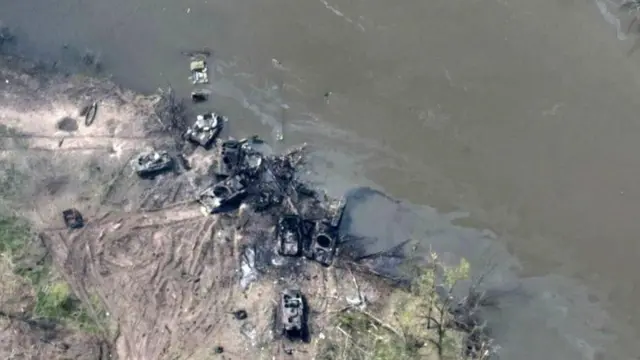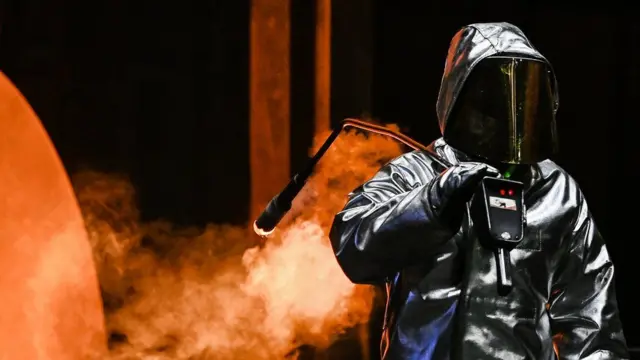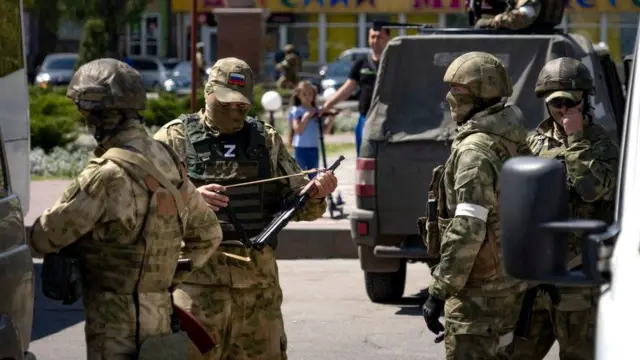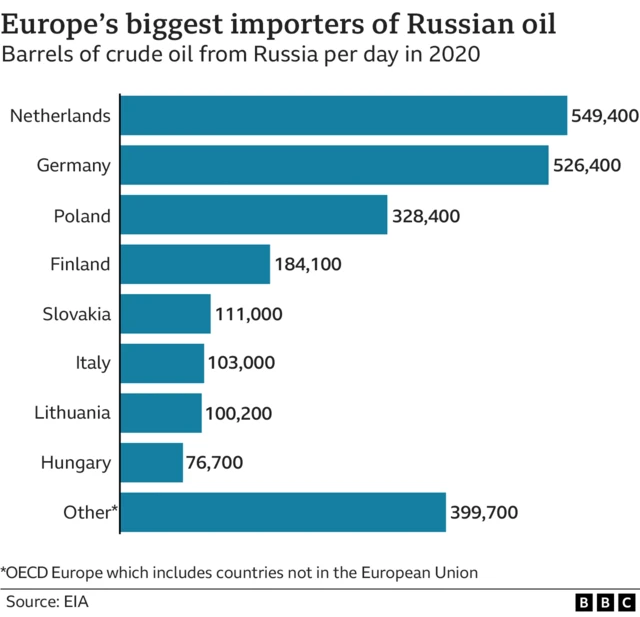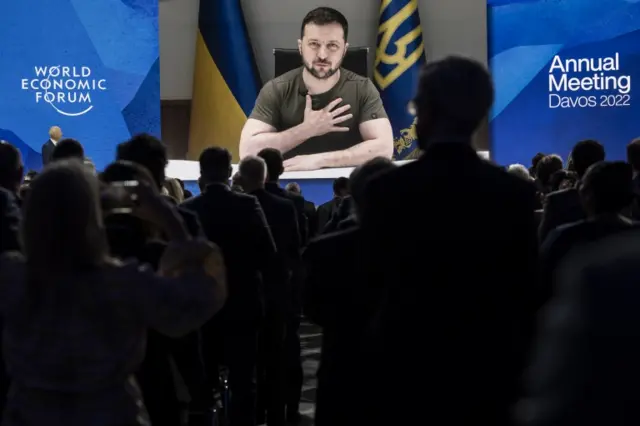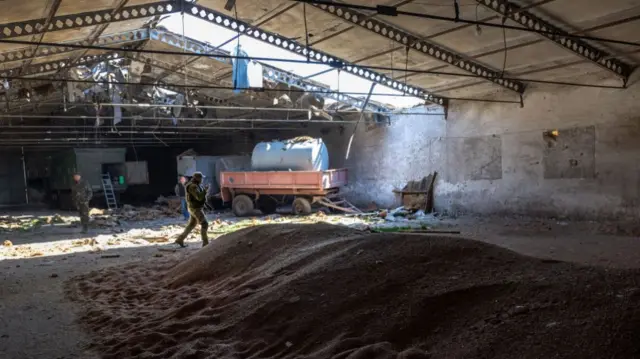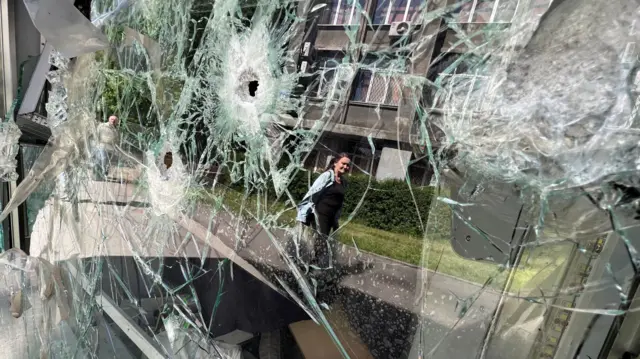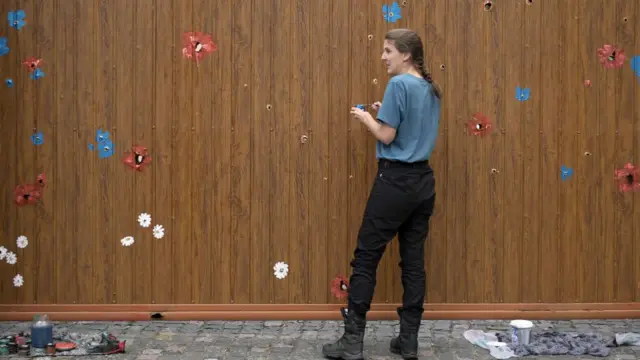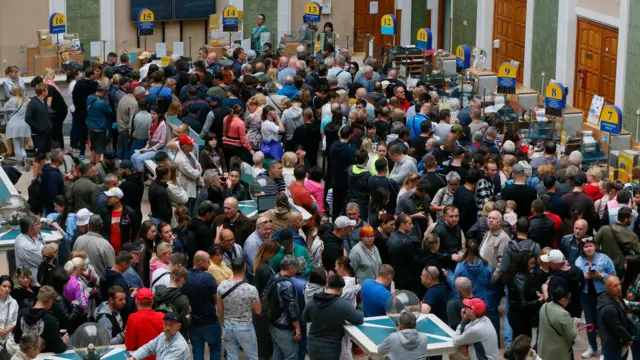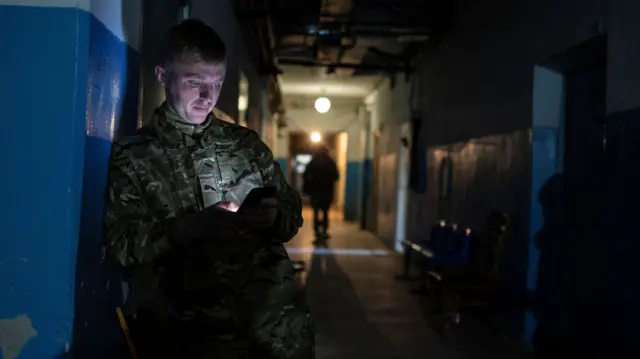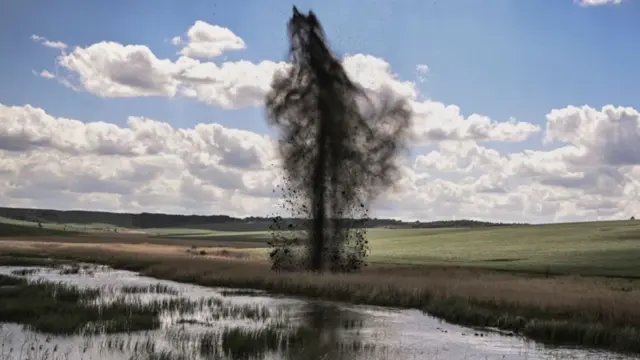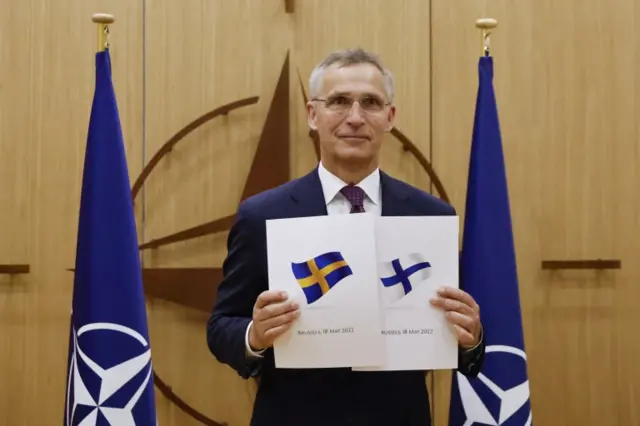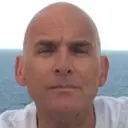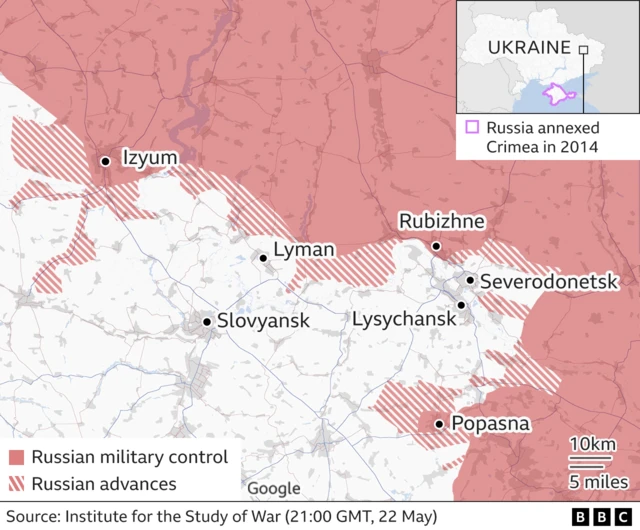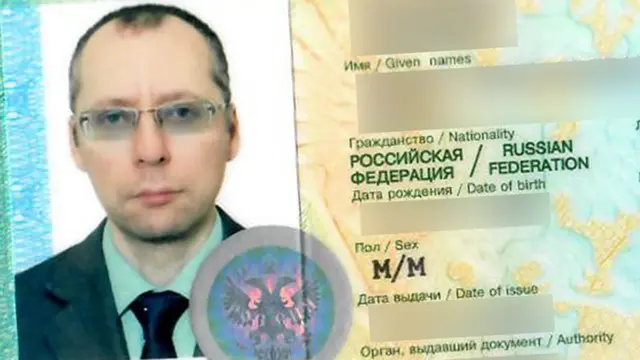'Massacre' underway in Donbas region - Zelenskypublished at 08:06 BST 24 May 2022
As we've been reporting, Russia is increasing its operations in Ukraine's eastern Donbas region and seeking to enclose some of its key cities.
In a late-night video address on Monday, Ukrainian President Volodymyr Zelensky said Russian forces have organised a "massacre" in Donbas, trying to destroy "everything living" in the region.
"Nobody destroyed Donbas as much as the Russian army does now," Zelensky said.
Severodonetsk, the largest city under Ukrainian control in Luhansk province, has recently seen some of the most difficult fighting of the conflict so far as Russian forces seek to encircle the city.
In an address to global business and political leaders in Davos earlier on Monday, Zelensky noted that Russian troops had "20 times more hardware" in Donbas than Ukraine did. He stressed that Ukraine needs long-range weapons to prevent losses.
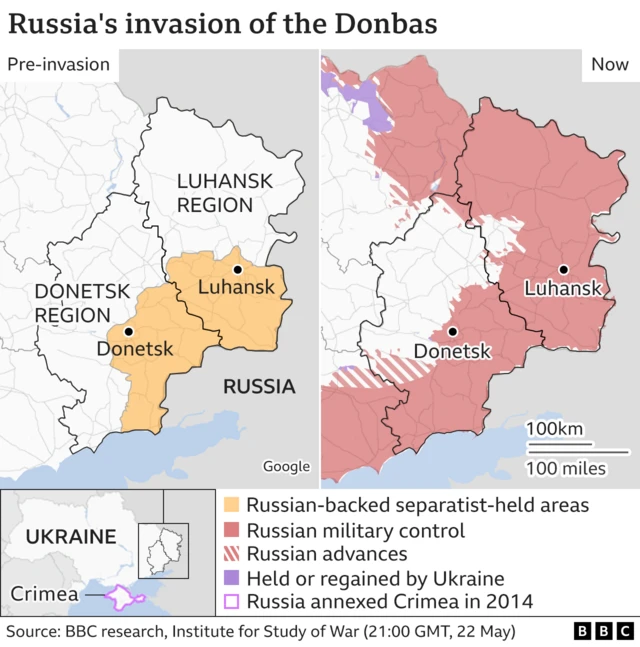 Image source, .
Image source, .